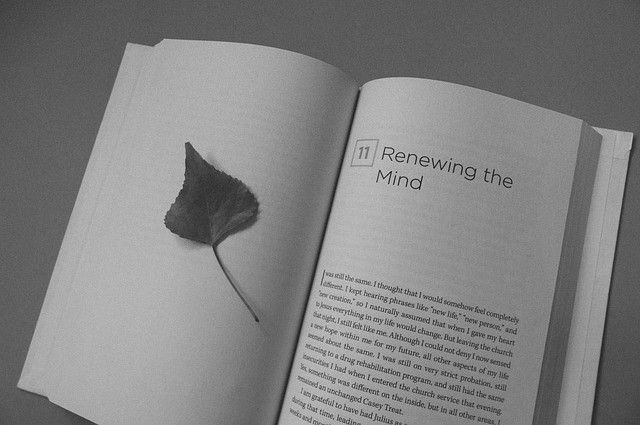英语反义疑问句类型归纳总结有哪些
反义疑问句(The Disjunctive Question或Question tags)即附加疑问句。它表示提问人的看法,没有把握,需要对方证实。 反义疑问句由两部分组成:前一部分是一个陈述句,后一部分是一个简短的疑问句,两部分的人称时态应保持一致。

主要形式:陈述部分肯定式+疑问部分否定式 ;陈述部分否定式+疑问部分肯定式 。句子类型,一种是反义的附加疑问句;一种是非反义的附加疑问句。简单来说,就是“前肯后否”或“前否后肯”。
陈述部分和疑问部分要么前肯后否,要么前否后肯。这类反义疑问句有时带有感情色彩,表示惊奇,愤怒,讽刺,不服气等。
)陈述部分的主语是I,疑问部分要用aren't I. / I'm as tall as your sister,aren't I?
2)陈述部分的谓语是wish,疑问部分要用may +主语。/I wish to have a word with you, may I?
3)陈述部分用no, nothing, nobody, never, few, seldom, hardly, rarely, little等否定含义的词时,疑问部分用肯定含义。
The Swede made no answer, did he / she? / Some plants never blown (开花), do they ?
4)含有ought to的反意疑问句,陈述部分是肯定的,疑问部分用shouldn't / oughtn't +主语。He ought to know what to do, oughtn't he? / shouldn't he?
5)陈述部分有have to +v. (had to + v.),疑问部分常用don't +主语(didn't +主语)。
We have to get there at eight tomorrow, don't we?
6)陈述部分的谓语是used to时,疑问部分用didn't +主语或usedn't +主语。
He used to take pictures there, didn't he? / usedn't he?
7)陈述部分有had better + v.疑问句部分用hadn't you?
You'd better read it by yourself, hadn't you?
8)陈述部分有would rather +v.,疑问部分多用wouldn't +主语。
He would rather read it ten times than recite it, wouldn't he?
9)陈述部分有You'd like to +v.疑问部分用wouldn't +主语。
You'd like to go with me, wouldn't you?
价值300元外教英语课程领取:http://www.acadsoc.com.cn/lps/lp4.htm?search=700053 (北美原版教材)
10)陈述部分有must的疑问句,疑问部分根据实际情况而定。
He must be a doctor, isn't he? / You must have studied English for three years, haven't you? (或者didn't you?) /He must have finished it yesterday, didn't he?
11)感叹句中,疑问部分用be +主语。
What colours, aren't they? / What a smell, isn't it?
12)陈述部分由neither…nor, either…or连接的并列主语时,疑问部分根据其实际逻辑意义而定。 Neither you nor I am engineer, are we?
13)陈述部分主语是指示代词或不定代词everything, that, nothing, this,疑问部分主语用it。
Everything is ready, isn't it?
14)陈述部分为主语从句或并列复合句,疑问部分有三种情况:
a.并列复合句疑问部分,谓语动词根据邻近从句的谓语而定。
Mr. Smith had been to Beijing for several times, he should have been in China now, shouldn't he?
b.带有定语从句,宾语从句的主从复合句,疑问部分谓语根据主句的谓语而定:
He is not the man who gave us a talk, is he? / He said he wanted to visit Japan, didn't he?
c.上述部分主句谓语是think, believe, expect, suppose, imagine等引导的定语从句,疑问部分与宾语从句相对应构成反意疑问句。
I don't think he is bright, is he? / We believe she can do it better, can't she?
15)陈述部分主语是不定代词everybody, anyone, somebody, nobody, no one等,疑问部分常用复数they,有时也用单数he。
Everyone knows the answer, don't they?(does he?) /Nobody knows about it, do they? (does he?)
16)带情态动词dare或need的反意疑问句,疑问部分常用need (dare ) +主语。
We need not do it again, need we ? / He dare not say so, dare you?
当dare, need为实义动词时,疑问部分用助动词do +主语。
She doesn't dare to go home alone, does she?
17)省去主语的祈使句的反意疑问句,疑问部分用will you。
Don't do that again, will you? / Go with me, will you / won't you ?
注意:Let's开头的祈使句,后用shall we?
Let us开头的祈使句,后用will you?
Let's go and listen to the music, shall we?
Let us wait for you in the reading-room, will you ?
18)陈述部分是"there be"结构的,疑问部分用there省略主语代词。
There is something wrong with your watch, isn't there?
There will not be any trouble, will there?
19)否定前缀不能视为否定词,其反意疑问句仍用否定形式。
It is impossible, isn't it? / He is not unkind to his classmates, is he?
20)must在表"推测"时,根据其推测的情况来确定反意疑问句。
He must be there now, isn't he? / It must be going to rain tomorrow, won't it?
关于英语中的所有的反义疑问句类型都列举出来了,通畅现在的英语较高等级和难度的英语考试中,不会单独出现有关反义疑问句的考题,但是在阅读听力和写作中,偶尔会遇到,因为反义疑问句正确的翻译会有显得有点“反常”,这会导致学员在翻译读懂上下文的过程中造成歧义,然后在有关同义或者反义词的选项答案中经常出错。
下一篇> 英语中主谓一致的规律小结有哪些






评论